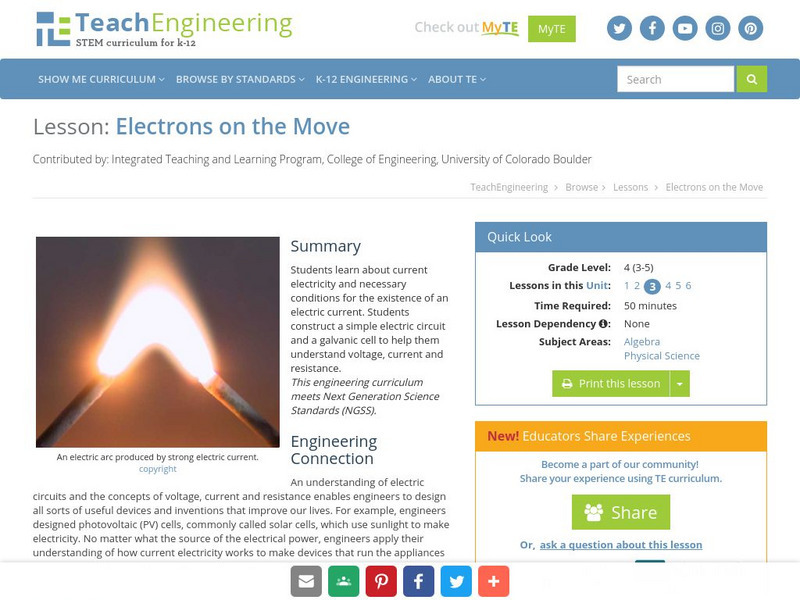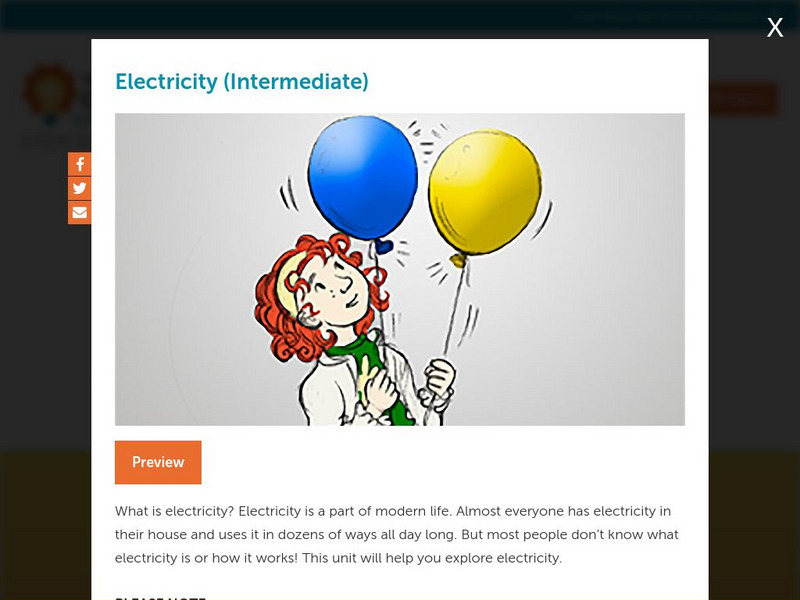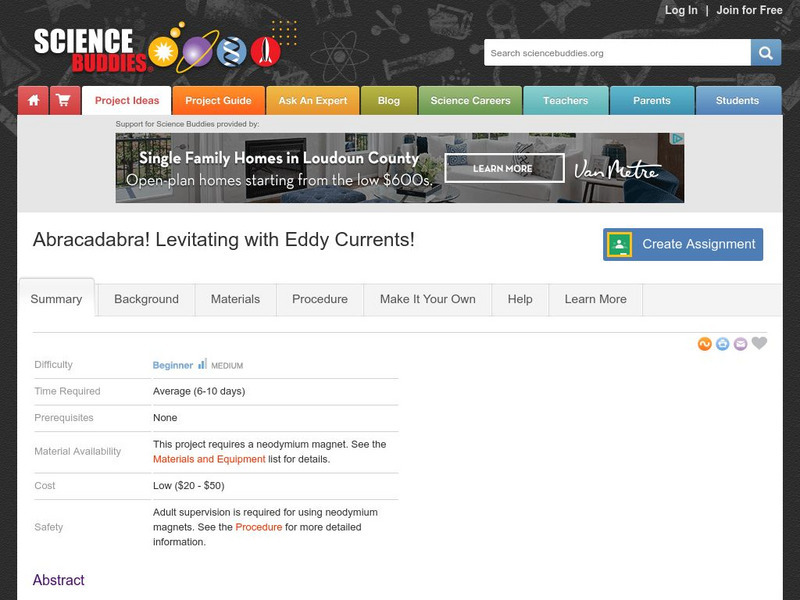Hi, what do you want to do?
Science Buddies
Science Buddies: Which Materials Are the Best Conductors?
There are two main types of materials when it comes to electricity, conductors, and insulators. What are they made of? Find out by testing different materials in a circuit to see which ones conduct the most electricity.
Science Buddies
Science Buddies: Project Ideas: Which Materials Are the Best Conductors?
A simple science fair project to test whether electricity can flow between two things. The Science Buddies project ideas are set up consistently beginning with an abstract, objective, and introduction, followed by a section on terms,...
TeachEngineering
Teach Engineering: Saltwater Circuit
Students build a saltwater circuit, which is an electrical circuit that uses saltwater as part of the circuit. Students investigate the conductivity of saltwater, and develop an understanding of how the amount of salt in a solution...
OpenStax
Open Stax: Physical Quantities and Units
Giving numerical values for physical quantities and equations for physical principles allows us to understand nature much more deeply than does qualitative description alone. To comprehend these vast ranges, we must also have accepted...
Other
Articles About "Electricity": New Explanations, Alternate Mental Toolkit
This highly informative site contains many resources and articles on electricity. A wealth of information about electricity can be found. This site also contains many FAQ's.
TeachEngineering
Teach Engineering: Electrons on the Move
Students learn about current electricity and necessary conditions for the existence of an electric current. Students construct a simple electric circuit and a galvanic cell to help them understand voltage, current and resistance.
eSchool Today
E School Today: Electricity
Explore current electricity and different types of electric circuits.
Massachusetts Institute of Technology
Mit: Open Course Ware: Current, Resistance, and Power
Learners investigate current, resistance, and power. Some topics explored in the activities are Ohm's law, electrical power, and solving circuits. The resource consists of video clips, lecture notes, online textbook chapters, exam...
CK-12 Foundation
Ck 12: Physics: Electrical Systems Study Guide
A study guide covering electrical systems.
Concord Consortium
Concord Consortium: Electricity (Intermediate)
Explore how electricity works in this module. (Requires Java)
Science Museum, London
Science Museum: Pocket Motor
Teacher directed activity shows students how flowing electrical current produces a magnetic field by building a simple motor.
TeachEngineering
Teach Engineering: Completing the Circuit
In the everyday electrical devices we use - calculators, remote controls and cell phones - a voltage source such as a battery is required to close the circuit and operate the device. In this hands-on activity, students use a battery,...
National High Magnetic Field Laboratory
Magnet Academy: Wheatstone Bridge
This circuit is most commonly used to determine the value of an unknown resistance to an electrical current.
Famous Scientists
Famous Scientists: Georg Ohm
Find out about the German physicist and mathematician whose work in the field of electrical current shaped the study of electricity.
CK-12 Foundation
Ck 12: Physical Science: Electric Conductors and Insulators
[Free Registration/Login may be required to access all resource tools.] Explores electrical conductors and insulators and the path of least resistance.
South Carolina Educational Television
Know It All: Understanding Electricity | Nasa Online
If you want to understand electricity, you first need to know a little about matter, atoms and electrons.
Open Curriculum
Open Curriculum: Electricity and Circuits
This article helps students understand the concepts of electricity and circuits.
Read Works
Read Works: Electricity & Energy Circuits
[Free Registration/Login Required] An informational text about electric circuits. A question sheet is available to help students build skills in reading comprehension.
CK-12 Foundation
Ck 12: Physical Science: Direct and Alternating Current
[Free Registration/Login may be required to access all resource tools.] Describes the difference between direct current and alternating current.
Science Buddies
Science Buddies: Abracadabra! Levitating With Eddy Currents!
Did you know that not all trains run on tracks? Some of the world's fastest trains are magnetic levitation trains (maglev). This means that the carriage of the train is suspended over the rails with no support, but only with magnetic...
TeachEngineering
Teach Engineering: Particle Sensing: The Coulter Counter
Students are presented with a short lesson on the Coulter principle, an electronic method to detect microscopic particles and determine their concentration in fluid. Depending on the focus of study, students can investigate the...
Science and Mathematics Initiative for Learning Enhancement (SMILE)
Smile: Electromagnets
This lesson plan contains several activities designed to help the student understand the magnetic effects of an electrical current.
CK-12 Foundation
Ck 12: The Electric Generator
[Free Registration/Login may be required to access all resource tools.] This lesson explains how an electric current is produced by a generator. Includes a simulation.
CK-12 Foundation
Ck 12: Physical Science: Electric Safety
[Free Registration/Login may be required to access all resource tools.] Overview of electric safety: short circuits, electric safety features, and how to use electricity safely.
Other popular searches
- Current Electricity
- Static and Current Electricity
- Bill Nye Current Electricity
- Current Electricity Test
- Current Electricity Power
- Current Electricity Review
- Static or Current Electricity
- Statc or Current Electricity
- Static Electricity Current

























